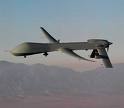The Nature of Drone Warfare: Review and Analysis

Four important reports that touch on the issue of drone warfare have appeared in recent weeks. While space forbids a detailed review of the reports, each in turn is extremely useful and well worth reading.
Cage Prisoners have released Unnecessary and Disproportional: The Killings of Anwar and Abdul Rahman al-Awlaki . The report examines the killing of Anwar al-Awlaki and the separate killing of his 16-year old son Abdul Rahman in US drone strikes. The report contradicts the narrative put forward by the US authorities and generally accepted by the media that al-Awlaki was as a leader of al-Qaeda in the Arabian Peninsula (AQAP) and the mastermind behind several attacks against the USA. Using the two killings as case studies, the report also raises important issues about the UK’s involvement in targeted killings as more evidence emerges of British citizens that have been killed in drone attacks including evidence to suggest that British authorities actively assist the CIA in its drone programme.
The report concludes by demanding complete transparency in relation to the process by which individuals are placed on President Obama’s ‘kill list’, independent investigations into civilian deaths and injuries during drone strikes and the end to British complicity and the complicity of any other States, with US drone strikes.
The health charity Medact have published a new report examining the health impact of drone warfare entitled, Drones: the physical and psychological implications of a global theatre of war. The report considers drones from a public health perspective and reveals the human cost of their use as well as the moral and ethical issues raised by ‘targeted killings’.
In addition to the number of deaths and injuries of innocent civilians caused by drone use, there is increasing evidence of the psychological damage to people living under the constant threat of drone attack, and to the drone operators themselves.
The report’s recommendations include greater parliamentary and public scrutiny of the use of drones, their inclusion in arms limitation treaties, and a stop to further automation in their operations.
The Human Rights Clinic at Columbia Law School has published a report examining the analysis of three organisations tracking the civilian casualties from US drone strikes. Counting Drone Strike Deaths examines the work of The New American Foundation, The Bureau of Investigative Journalism and the Long War Journal on compiling drone strike casualty statistics. The three organisations were chosen because they are “the most influential of such organizations” and “their work has in many instances catalyzed debate about the effectiveness and humanitarian cost of strikes.”
The report finds that all three organisations have “consistently underestimated the potential number of civilians killed in Pakistan during 2011.” However the report finds that the Bureau of Investigative Journalism had “consistently purported to actively track civilian casualties—as opposed to focusing on providing an estimate of the overall number of individuals killed.” The report calls for the US government to release information on casualties from US drone strikes.
Finally, although not directly related to the issue of drones, the Campaign Against Depleted Uranium (CADU) have published Managing acceptability: UK policy on depleted uranium weapons. The report examines how the public debate around the acceptability and use of Depleted Uranium (DU) was managed by the Ministry of Defence. According to CADU “archive material released under the thirty year rule have revealed that the Ministry of Defence (MoD) have known from the outset that contamination from DU munitions was likely to be problematic and controversial. To get political clearance for the weapons’ development, hazards were downplayed and cabinet discussions managed.”
The report makes a number of sound recommendations including calling for an end to the use of DU weapons and for greater scrutiny over MoD weapons policy. This is the aspect that directly relates to drones as the report’s authors themselves make clear:
“Increasing focus on inhumane, indiscriminate and controversial weapons during the last two decades has underlined the need for more balanced debate over how the MoD chooses its methods and means of warfare. New technologies such as drones and autonomous robots will again test the responsiveness of the MoD to humanitarian concerns, even as criticism grows of the lack of scrutiny over MoD policy for the assessment of the legality of new weapons. Parliament and civil society should have a stronger, more formalised role in these debates in order to add a democratic counterbalance to the interests of the MoD.”





